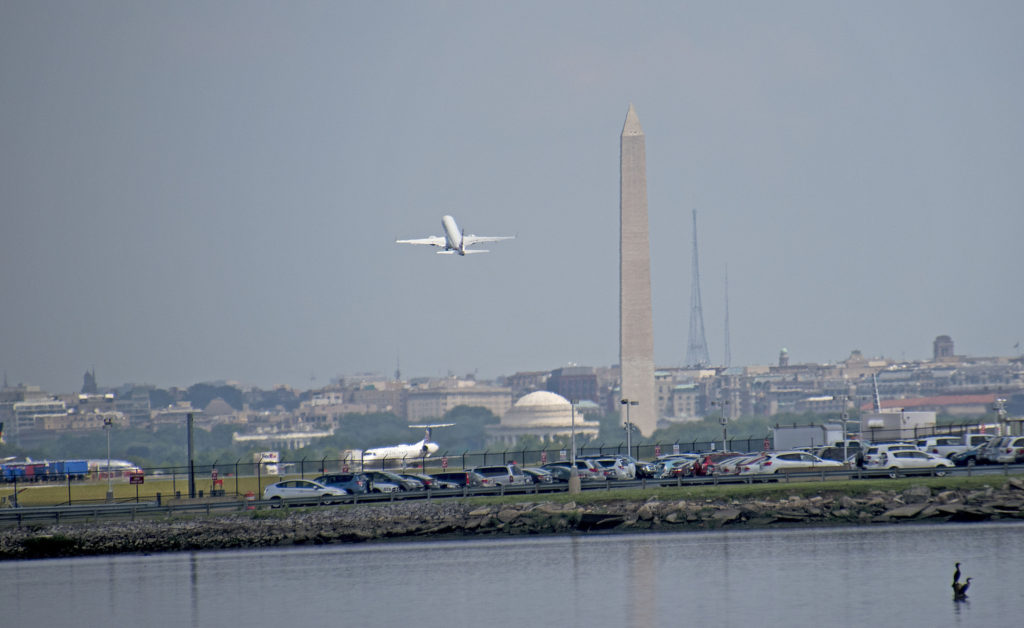As the reauthorization legislation of the Federal Aviation Administration (FAA) cleared the House of Representatives last week, it also included amendments to bolster federal support for spaceports and to reduce airport noise, forwarded by Congresswoman Barbara Comstock (VA-10). The FAA Reauthorization Act of 2018 passed the House with a 393-13 vote.
“This critical five-year extension to the FAA will help keep America at the forefront of aviation innovation as we continue to lead the world,” said Comstock according to The Ripon Advance.
Comstock, who is also a member of the House Transportation and Infrastructure Committee, said that American aviation manufacturers must remain globally competitive. By utilizing long-term industry infrastructure investments, they will make the U.S. the best place of business for the next advancements in aeronautics.
“This investment in our infrastructure will pay dividends to future generations,” she said. “Our aviation community needs to be competitive with our global counterparts as we look to the future of aviation. This legislation maintains that competitiveness while reinforcing passenger protections so our flight system stays the safest in the world.”
The role of spaceports will be strengthened by the new legislation, namely the Mid-Atlantic Regional Spaceport (MARS) in Wallops Island, Virginia. One of her amendments would, “require a study on possible funding options for a potential federal grant program for spaceport activities.” according to the congressional summary.
Particularly, her amendment would require a set of reporting guidelines to be established, dubbed the National Spaceports Policy. The analysis would evaluate national security and civil space launch demands and, “propose[s] policies designed to ensure a robust and resilient orbital and suborbital spaceport infrastructure; and review[s] the development and investments made by international competitors.”
Furthermore, the amendment would institute an Office of Spaceports within the FAA to support, promote, and enable infrastructure improvements at FAA-licensed spaceports in the U.S.
Within the last few years, lower-cost aerospace capabilities from the National Aeronautics and Space Administration (NASA), in conjunction with private sector competition, have provided that spaceports are now seen as new avenue for commercial, industrial, and defense use. Therefore, the bill was set to improve the resiliency and responsiveness of the infrastructure.
“The FAA currently plays a critical role in licensing and working with these spaceports as they grow their infrastructure and capabilities to support a variety of missions,” Comstock said.
Even though airports and spaceports are usually located outside of populated areas, they still create a lot of noise pollution. Comstock realized this and also supported an additional amendment to the legislation that would require the FAA administrator, currently Dan Elwell, to head a full, “review of the relationship between aircraft noise exposure and its effects on communities around airports.”
“I was pleased to see this provision included that would support environmental research to reduce noise pollution,” Comstock said.
The congresswoman has two busy airports in her district: Ronald Reagan Washington National Airport in Arlington and Washington Dulles International Airport in Loudoun and Fairfax Counties. She led a charge to implement “slot and perimeter” rules that aid in the balance of regional air traffic. The FAA defines “slots” as, “limits on flight arrivals and departures that are designed to manage air traffic at busy airports.”
In early April, Comstock spearheaded a bipartisan, bicameral letter to FAA adminstrators to “maintain the status quo limiting air traffic at Reagan National” near Washington, D.C.
“We fought and succeeded in keeping slot and perimeter rules unchanged, ensuring that the current balance of air traffic between Dulles Airport and Reagan National remains in place,” Comstock said following the April 27 vote.
Legislation also included the Disaster Recovery Reform Act, originally introduced by Congressman Lou Barletta (PA-11). She applauded the measure by her Republican colleague that would advance Federal Emergency Management Agency (FEMA) reforms that “prioritize mitigation so that future damages can be minimized and lives saved.”

